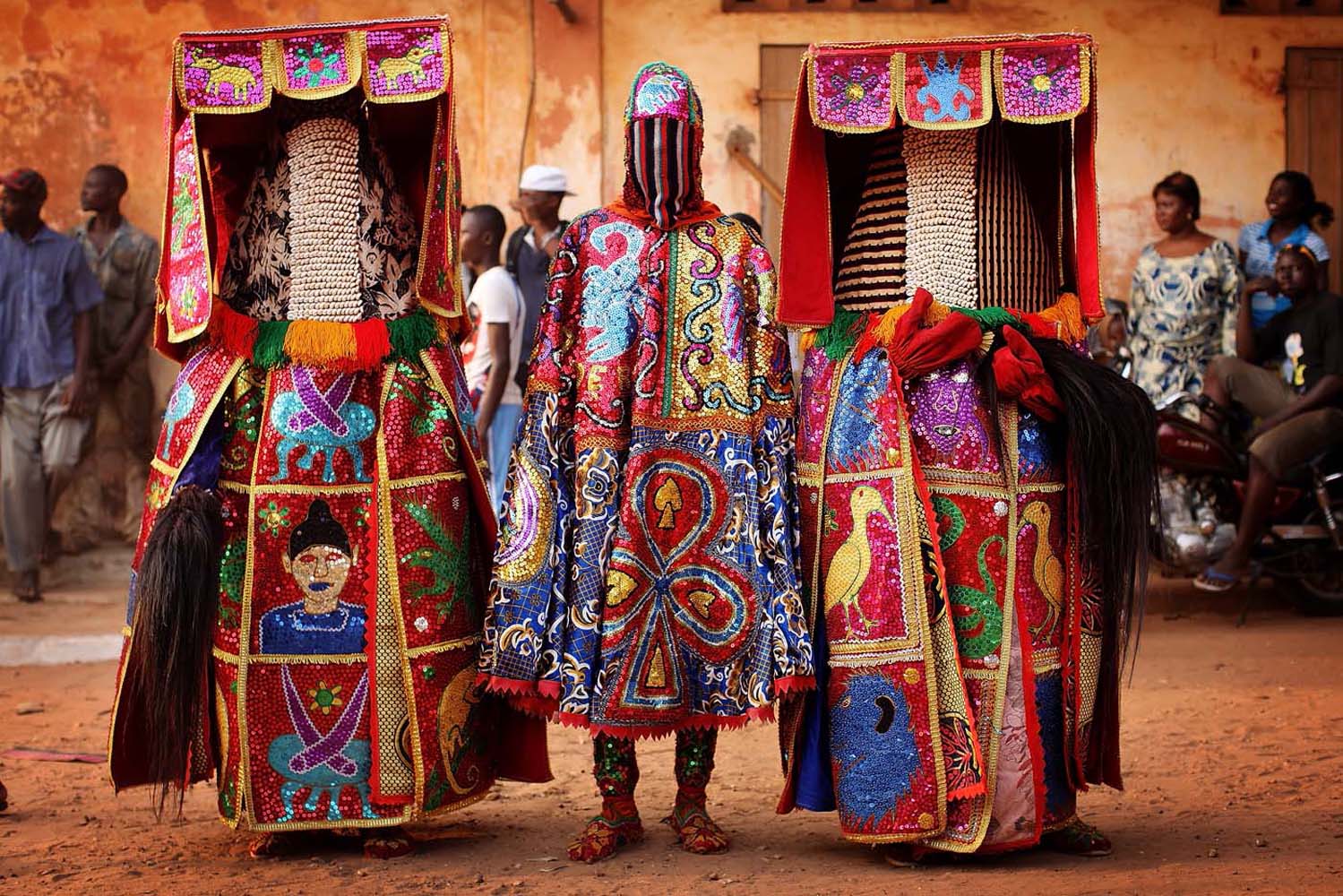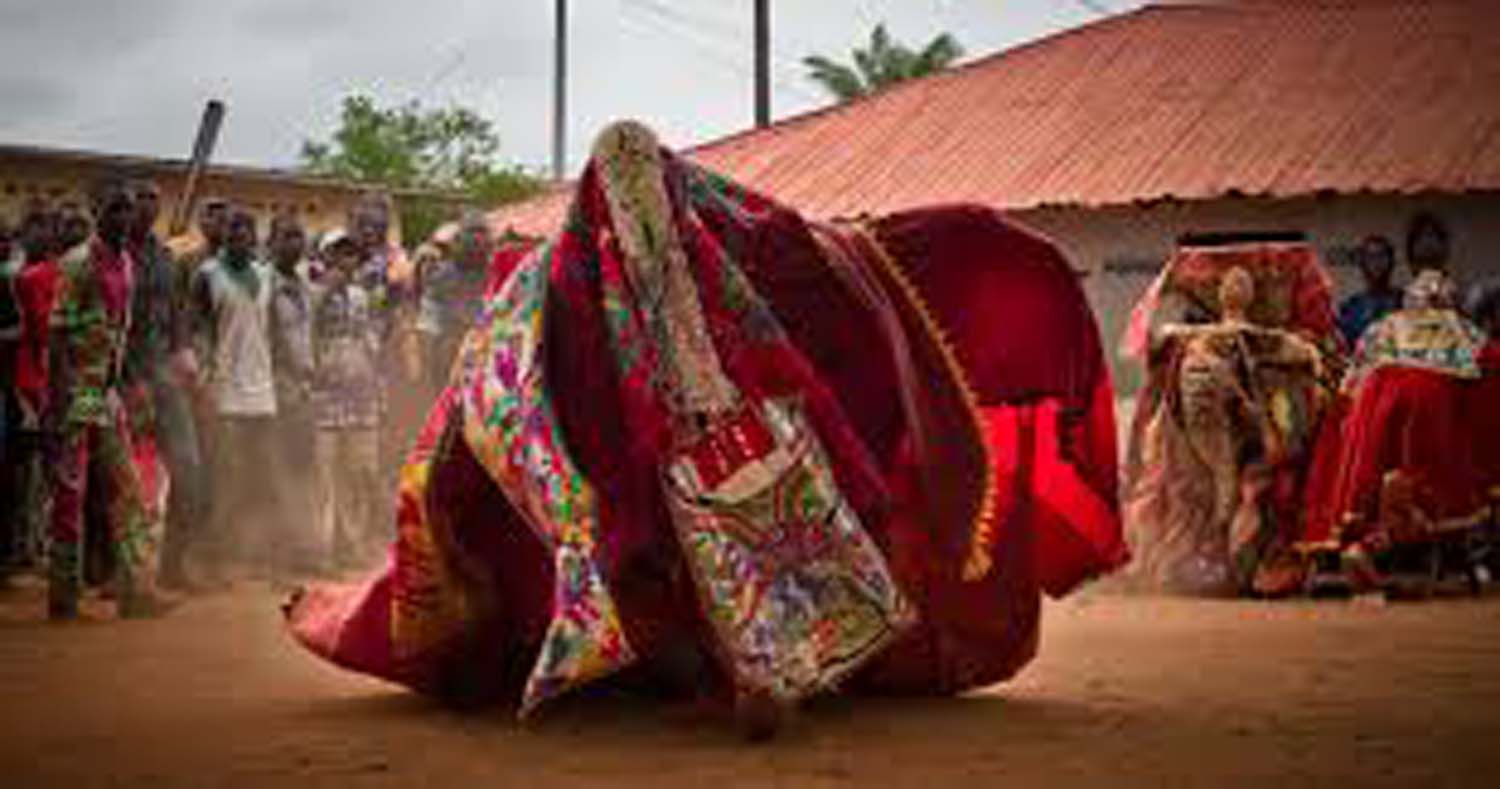BABATUNDE ALLEN BAKARE
Title of the Proposed Paper: Dialectical Importance of Costumes in Performance of Traditional Alarinjo Theatre
ABSTRACT
The Yoruba Traditional Alarinjo (Travelling) Theatre, according to different scholars of Nigerian theatre and drama, is a highly itinerant theatrical performance of Egungun (masquerade), located around numbers of Yoruba settlements, such as villages and major towns. Their performances were occasionally initiated by important personalities such as Kings and Chiefs. They gradually became open to the general audience at the later period in the history of Yoruba people.
This theatrical performance shares many qualities and similarities with other theatrical traditions such as Kabuki theatre of the Japanese and Peking Opera of the Chinese people. The origin of the Yoruba Traditional Alarinjoperformance/theatre may not be connected to both Kabuki and Peking Opera, but these three cultures are rooted in people’s culture and tradition, and flamboyant costumes have been critical to their performances during the past and even now.
The name “Alarinjo”, according to Adedeji (1972), means a “travelling dance group”; a group that is highly peripatetic in nature, made up typically of groups of masquerades with flamboyant costumes and individuals who are agile and energetic. Ajayi (2004:618) states that “[t]echnically, an Alarinjo troupe is an all-male performing company like the Egungun. Although women can be dancers and chorus singers, they are not allowed to perform the masque.” The female role in the Alarinjo performance, just like in the classical theatre, is acted out by the male troupe member. Ajayi further explains that, “[w]hen a sketch calls for female roles such as in Iyawo (bridal) possession, the masques dress as women, assume female mannerisms and play for laughs.” Consequently from the foregoing, Alarinjo is no doubt a masque theatre and drama, going by various details and illustrations provided by several scholars of theatre and drama.
This study is aimed at examining how critical costumes are to the performance of Alarinjo theatrical performance. In addition, the study analyzes the socio-psychological and philosophical meaning of costumes in Alarinjo theatrical performance, from Yoruba cultural perspective. Objectively, this study tends to reveal in a hypothetical way that costumes in Alarinjo performances have deeper meaning and roles that transcends colourful displays of traditional fabrics and attires.
BIOGRAPHY
Dr. Bakare Babatunde Allen is from Nigeria. He earned a BA (Hons) in Dramatic Arts at Obafemi Awolowo University, Ile-Ife in 2003. In 2005, Dr. Bakare obtained a certificate in British and Irish Literature at the University of Edinburgh, Scotland. He completed his Master’s of Philosophy in Ibsen Studies at the University of Oslo, Norway in 2008. He completed a PhD in Drama and Theatre Studies at Stellenbosch University, South-Africa in 2018. Dr. Bakare has published both in local and international journals of reputable standing. He has taught theatre and drama for seven years at Nasarawa University and Bowen University, Nigeria.
Photo 1:
Source: Tuck Magazine Source: UGC
Photo 2:
Source: piccsr.com Source: UGC



